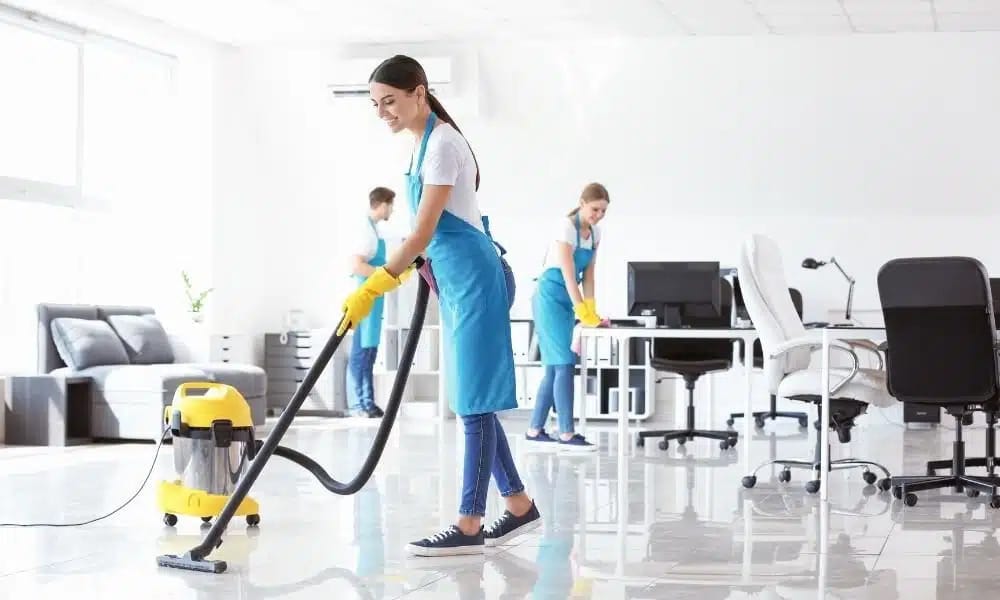Malaysia’s industrial sector is comprised of palm oil refineries and rubber processing plants to electronics manufacturing hubs. All of these sectors have different operational challenges, particularly around cleanliness and maintenance. General cleaning may be enough for small setups, but for large factories, industrial cleaning services are required that are designed to meet the risks, residues, and regulatory standards of the factory environment.
Failure to identify these unique requirements can result in contamination, safety hazards, equipment failure, or even non compliance with Malaysian health and safety regulations. In this article, I break down the specific cleaning needs of major industries in Malaysia and explain why a differentiated approach is key to operational success.
The Palm Oil Industry: Grease, Contamination, and Compliance
Malaysia is indeed a big palm oil country where it is one of the major economic pillars, but the processing has to do with complex systems handling fatty acids, oils and even heat. As time passes, grease, organic waste, and industrial sludge build up in machinery, pipelines and exhaust systems in these facilities.
The challenge in cleaning here is:
Standard solvents are not effective against palm oil residues, which are high-viscosity residues.
Disposal of cleaning waste must be according to environmental standards to avoid polluting the nearby water sources.
Accumulated oil and grease raise the risk of combustion in overheated portions of processing lines.
In this sector, specialised industrial cleaning services often use high pressure steam cleaning, enzymatic degreasers, and dry ice blasting to deeply sanitize the manufacturing line without requiring long periods of business stoppage. In addition to remove the contaminants, these techniques also retain the integrity of the sensitive equipment.
Electronics Manufacturing: Dust-Free Is a Must
Malaysia is a major producer of semiconductor and electronics all over the world. In this precision based environment, defecting products or system malfunctions due to even microscopic dust particles are feasible. These facilities have cleaning standards far higher than most other industries.
Key challenges include:
Cleaning materials and tools have to be electrostatic sensitive for delicate circuits.
High humidity can cause short circuits or corrosion, low humidity will lead to static buildup.
A number of electronics facilities classify cleanrooms by ISO: They strictly regulate air quality and surface cleanliness.
Industrial cleaning in such environments is not limited to surface wiping. HEPA-filtered vacuuming, anti-static fogging, and sometimes UV sterilisation are among the services. Consequently the objective is not the simple cleanliness, but a controlled and contaminant free environment, in which the product integrity can be maintained.
Rubber Processing: Dealing with Residue and Odor Control
While Malaysia’s rubber industry is no longer as globally dominant as it once was, it is still a significant local contributor, particularly in the manufacturing of gloves and processing of latex. Rubber curing gives off odorous compounds and leaves behind sulphur based residues, chemical adhesives and particulate waste.
This industry has cleaning challenges such as:
Strong odors caused by ammonia, sulphur compounds, and protein degradation may violate workplace standards if not adequately controlled.
Sticky residues from vulcanisation are hard to remove with conventional methods.
Poor air quality and surface contamination can be a respiratory hazard to workers.
These issues are effectively addressed by industrial cleaning services through activated carbon filtration, neutralising sprays and mechanical scrubbing with chemical specific agents. Industrial grade air movers and exhaust cleaning are also used by some facilities to increase ventilation.
Food Processing: Hygiene Meets Speed
Cleanliness is legally and culturally obligatory in Malaysia’s halal food processing plants. In meat, dairy or packaged food facilities with high output, however, protocols for cleaning must be executed quickly and thoroughly in order to avoid downtime.
Challenges include:
Routine disinfection must eliminate all biological contamination from E. coli to Salmonella.
The cleaning is needed to be completed fast in rapid operable windows without sacrificing thoroughness.
Complexity of equipment: Machineries with more than one moving parts and difficult parts to reach require specialised cleaning.
Services in this sector typically involve automated foam-cleaning systems which are manually scrubbed and microbiologically tested. It is not about just visibly clean surfaces but a pathogen free zone which is verified by regular audits.
One Size Doesn’t Fit All: The Importance of Sector-Specific Solutions
Considering the variety of Malaysian industries, there is a greater need for sector specific industrial cleaning services than ever before. No matter if you manage a palm oil refinery in Johor or an electronics hub in Penang or a food processing house in Selangor, one size fits all method of cleaning is inefficient and perhaps unsafe as well.
Services tailored to the needs of the company bring with them the right tools and techniques, and an understanding of compliance standards, environmental concerns, and production goals. With industries becoming more complex, so must the cleaning processes.
Conclusion
With industrial diversity as the main driver to economic growth for a country like Malaysia, clean facility is not just for aesthetics but a strategic one. Industrial cleaning specialist companies have an edge over those companies which don’t invest in the specialized services; They meet hygiene standards, enhance work efficiency, better the product quality and ensure work safety to their workers. Cleanliness may not simply be attractive maintenance in the long run; it may also be an attractive opportunity.

